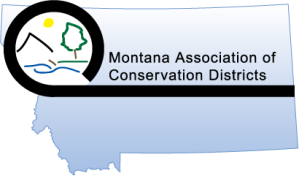EPA’s Waters of the U.S. Changes Impacts Ranchers and Water Quality

On Friday November 14th, the Montana Stockgrowers Association (MSGA), Montana Association of State Grazing Districts (MASGD), Montana CattleWomen (MCW) and the Montana Public Lands Council (MPLC), submitted comments to EPA regarding the Proposed Rule regarding the definition of “Waters of the U.S.” under the Clean Water Act .
Montana has long been known as an agricultural state. Farming and Ranching contribute billions to the state’s economy as Montana’s largest business sector. In fact, there are 2.5 cattle for every Montana resident. Over 28,000 farms and ranches are in Montana today, each working every day to conserve and sustain the environment we all call home.
One of the most pressing issues for our members in 2014 has been proposed changes to the Clean Water Act from the Environmental Protection Agency. The EPA wants to broaden their definition of “Waters of the U.S.” which would increase their jurisdiction to regulate, not only more water, but also potentially, much of the land surrounding those waterways.
Ranchers rely on clean water for their crops and livestock and are often at the front line of maintaining and improving water quality to sustain and conserve our environment. Irrigation plays a critical role in farming and ranching in Montana, whether it is for growing forages or crops. EPA’s proposed rule could change the agency’s jurisdiction when it comes to regulating both land and water that Montana farmers and ranchers depend on for a living.
As organizations representing farmers and ranchers, who have cared for the land for many generations, we believe our members do a great job of conserving and sustaining a clean water supply, not only for their land, but also for everyone downstream, including water supplies for many wildlife and Montana communities.
Due to the complexity of the issue, there has been a large degree of confusion and uncertainty from the people directly affected by this proposed rule change. In our comments, we requested EPA to drop the proposed rule changes to the Clean Water Act. If the proposed rule cannot be dropped, we provided specific concerns and recommendations for EPA to address.
Our comments included the following:
- Remove the expansion of the Clean Water Act to intermittent and ephemeral non-navigable streams, which are defined as tributaries and per se jurisdictional under the proposed rule.
- Remove the inclusion of ditches in the definition of tributary.
- Remove the provision that would make isolated wetlands, ponds and other open waters per se jurisdictional if they are located within a riparian area or floodplain.
- The exclusions and exemptions provided under the proposed rule are unclear and too narrow to provide protections for landowners. Clarification is needed prior to moving forward with a rule.
- Due to inadequate input from landowners, we request the agency to immediately withdraw the Interpretive Rule that limits the Sec. 404 “normal farming, silviculture and ranching” exemption to 56 NRCS practices.
- The proposed rule usurps states’ rights to manage waters and land use activity. This proposed rule is an overreach that makes all waters federal, violating the Commerce Clause of the Constitution and the plain language of the Clean Water Act.
- Due to the proposed rule ambiguities and uncertainty, we request the agencies withdraw the rule.
- We would encourage the agencies to engage in meaningful discussions with the states to better define the areas, if there are any, that states feel are deficient in meeting water quality standards.
Montana’s water laws are very comprehensive, do a good job of regulating the quantity of water used by agriculture, and ensure that water quality remains a priority when it comes to impacts on our environment, wildlife and surrounding communities.
The EPA’s proposed actions on this rule making process are a strong reminder to ranchers and members of the agriculture community of the need to remain actively involved in the policymaking processes, working to keep state and federal agencies aware of the continual improvements taking place, so that we may continue being good stewards of our environment and resources.
Montana Stockgrowers Association encourages, you as members, to remain active in your communities, and be engaged in conversations surrounding these critical issues that affect our ability to produce food, fiber and fuel products for Montanans and a growing global population. As this rule making process moves forward, MSGA will provide any updates as they become available. We would also like to thank the members who provided additional comments on this very important issue.For further questions, please contact Jay Bodner at the MSGA office at (406) 442-3420. A complete copy of the comments submitted can be viewed by visiting http://bit.ly/WOTUScomments.






